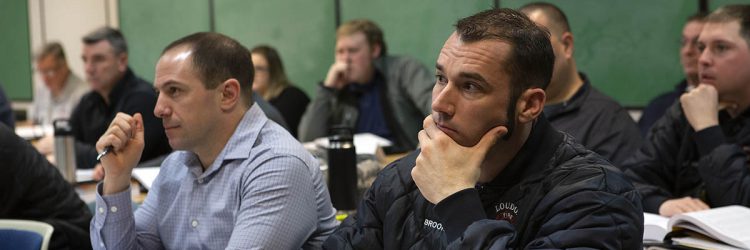
Paramedic
April 18, 2024 - April 1, 2025
Description
From the Course Catalog
The Paramedic is an allied health professional whose primary focus is to provide advanced emergency medical care for critical and emergent patients who access the emergency medical system. This individual possesses the complex knowledge and skills necessary to provide patient care and transportation. Paramedics function as part of a comprehensive EMS response, under medical oversight. Paramedics perform interventions with the basic and advanced equipment typically found on an ambulance. The Paramedic is a link from the scene into the healthcare system. The Paramedic’s scope of practice includes basic and advanced skills focused on the acute management and transportation of the broad range of patients who access the emergency medical system. This may occur at an emergency scene until transportation resources arrive, from an emergency scene to a health care facility, between health care facilities, or in other health care settings. In some communities, Paramedics provide a large portion of the out-of-hospital care and represent the highest level of out-of-hospital care. In communities that use emergency medical dispatch systems, Paramedics may be part of a tiered response system. In all cases, Paramedics work alongside other EMS and health care professionals as an integral part of the emergency care team. The Paramedic’s scope of practice includes invasive and pharmacological interventions to reduce the morbidity and mortality associated with acute out-of-hospital medical and traumatic emergencies. Emergency care is based on an advanced assessment and the formulation of a field impression. The Paramedic provides care designed to minimize secondary injury and provide comfort to the patient and family while transporting the patient to an appropriate health care facility. The Paramedic has knowledge, skills, and abilities developed by appropriate formal education and training. The Paramedic has the knowledge associated with, and is expected to be competent in, all of the skills of the EMR, EMT, and AEMT. The major difference between the Paramedic and the Advanced Emergency Medical Technician is the ability to perform a broader range of advanced skills. These skills carry a greater risk for the patient if improperly or inappropriately performed, are more difficult to attain and maintain competency in, and require significant background knowledge in basic and applied sciences. The Paramedic is the minimum licensure level for patients requiring the full range of advanced out-of-hospital care. The scope of practice is limited to advanced skills that are effective and can be performed safely in an out-of-hospital setting with medical oversight. The Paramedic transports all emergency patients to an appropriate medical facility. The Paramedic serves as part of an EMS response system, ensuring a progressive increase in the level of assessment and care. The Paramedic may make destination decisions in collaboration with medical oversight. The principal disposition of the patient encounter will result in the direct delivery of the patient to an acute care facility. In addition to emergency response, Paramedics often perform medical transport services of patients requiring care within their scope of practice.1
Registration
Registration is only permitted within the defined registration window. Prerequisites must be met at the time of registration. Courses where pricing is listed as "grant funded" covers course tuition only. Overtime/backfill eligible courses will be specifically noted.
Registration Opens: Wednesday November 29, 2023 @ 00:00 Registration Closes: Thursday April 11, 2024 @ 00:00



